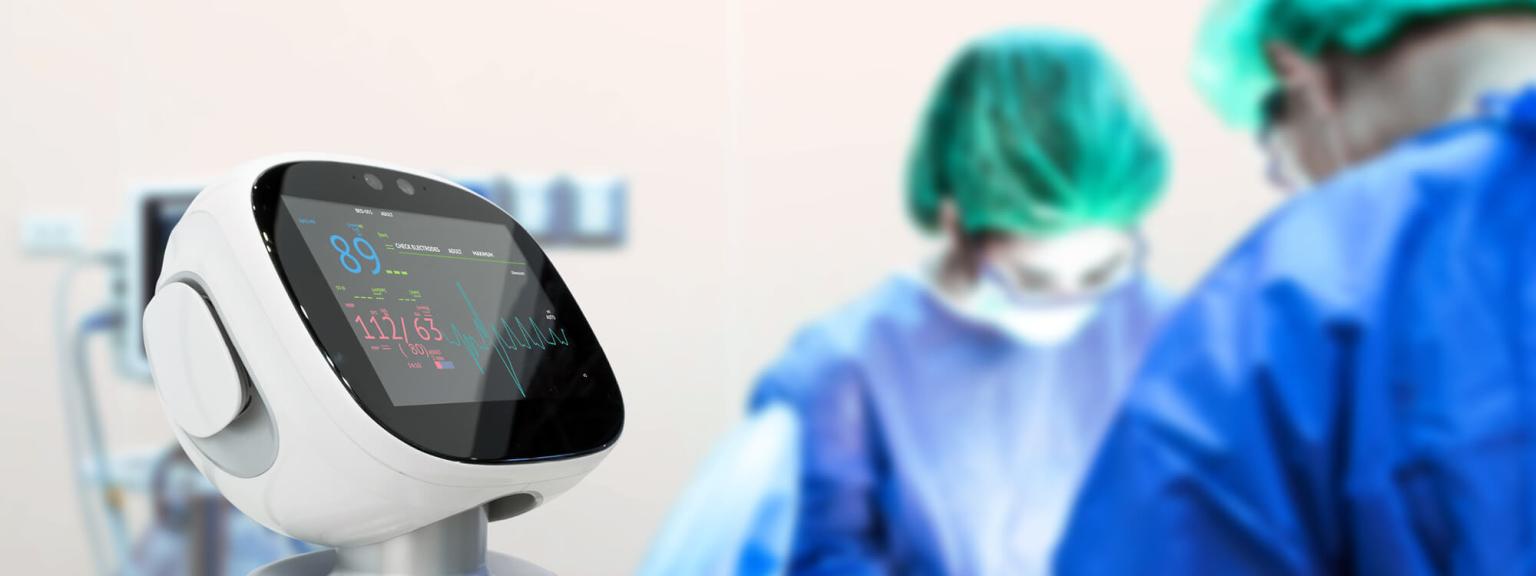
How many jobs will AI create in healthcare?
Artificial Intelligence (AI) and related technologies are expected to create as many jobs as they displace in the UK over the next 20 years, according to an analysis by PwC (PricewaterhouseCoopers).
PwC’s research has revealed that approximately seven million existing jobs could be displaced, but around 7.2 million could be created, giving the UK a small net jobs boost of around 0.2 million.
While the overall net effect of AI on UK jobs may be broadly neutral, this varies significantly across industry sectors. The most positive effect of AI is seen in the health and social work sector, where employment could increase by nearly one million; equivalent to around 20% of existing jobs in the sector.
Research has found that London will have the most positive estimated impact (+2%) on the net effect, because it benefits from being home to 28% of the UK’s professional, scientific and technical activities, as well as 31% of the country’s information and communication sector.
AI’s eye for detail
John Hawksworth, Chief Economist at PwC, said: “Healthcare is likely to see rising employment as it will be increasingly in demand as society becomes richer and the UK population ages. While some jobs may be displaced, many more are likely to be created as real incomes rise and patients still want the ‘human touch’ from doctors, nurses and other health and social care workers.”
A study (published in the Nature Medicine journal) by Moorfields Eye Hospital and Google’s DeepMind – a world leader in AI research and application – has found that a machine can be taught to read complex eye scans and detect more than 50 eye conditions. According to the findings, AI correctly identified and diagnosed different types of eye disease from OCT scans 94.5% of the time, including glaucoma, diabetic retinopathy and macular degeneration. This is equal to retina specialists who were using extra notes and the OCT scans, providing that AI could help to cut back the amount of time doctors spend diagnosing.
Demand for AI skills reaches an all-time high
The rising demand for AI technologies will result in the fourth industrial revolution favouring candidates with strong digital skills, as well as capabilities like creativity and teamwork which machines will find difficult to replicate.
The government is, therefore, being urged to invest more in ‘STEAM’ skills that will be most useful to people in this increasingly automated world. This means focusing more on STEM subjects (science, technology, engineering and mathematics), but also exploring how art and design (the ‘A’ in ‘STEAM’) can feature at the heart of innovation. Workers should also be encouraged to continually update and adapt their skills to complement what new machines and technology can achieve, as Chris Rosebert, data science and AI recruitment specialist, at Networkers, explains:
As digital health organisations are increasingly using the power of intelligent technologies to improve diagnosis and deliver personalised, efficient care, the demand for AI researchers, data scientists and machine-learning engineers is intensifying.
From digital health start-ups to global pharmaceutical giants, the need for these skills is at an all-time high and those with backgrounds in natural language processing, computer vision and image processing are among the most sought-after candidates.
AI in digital health has the ability to democratise healthcare, which is very attractive to people who want to work on world-changing projects and build a better future.
Sector insights
- Engineering insights
- Aerospace insights
- Automotive insights
- Maritime insights
- Infrastructure insights
- Highways insights
- Rail insights
- Building Services insights
- Water & Environment insights
- Energy insights
- Renewables insights
- Oil & Gas insights
- Power & Nuclear insights
- Engineering Technology insights
- Telecoms insights
- Technology insights
- AI & Robotics insights
- Cloud insights
- Cyber Security insights
- ERP insights
- Development insights
- Project Management insights